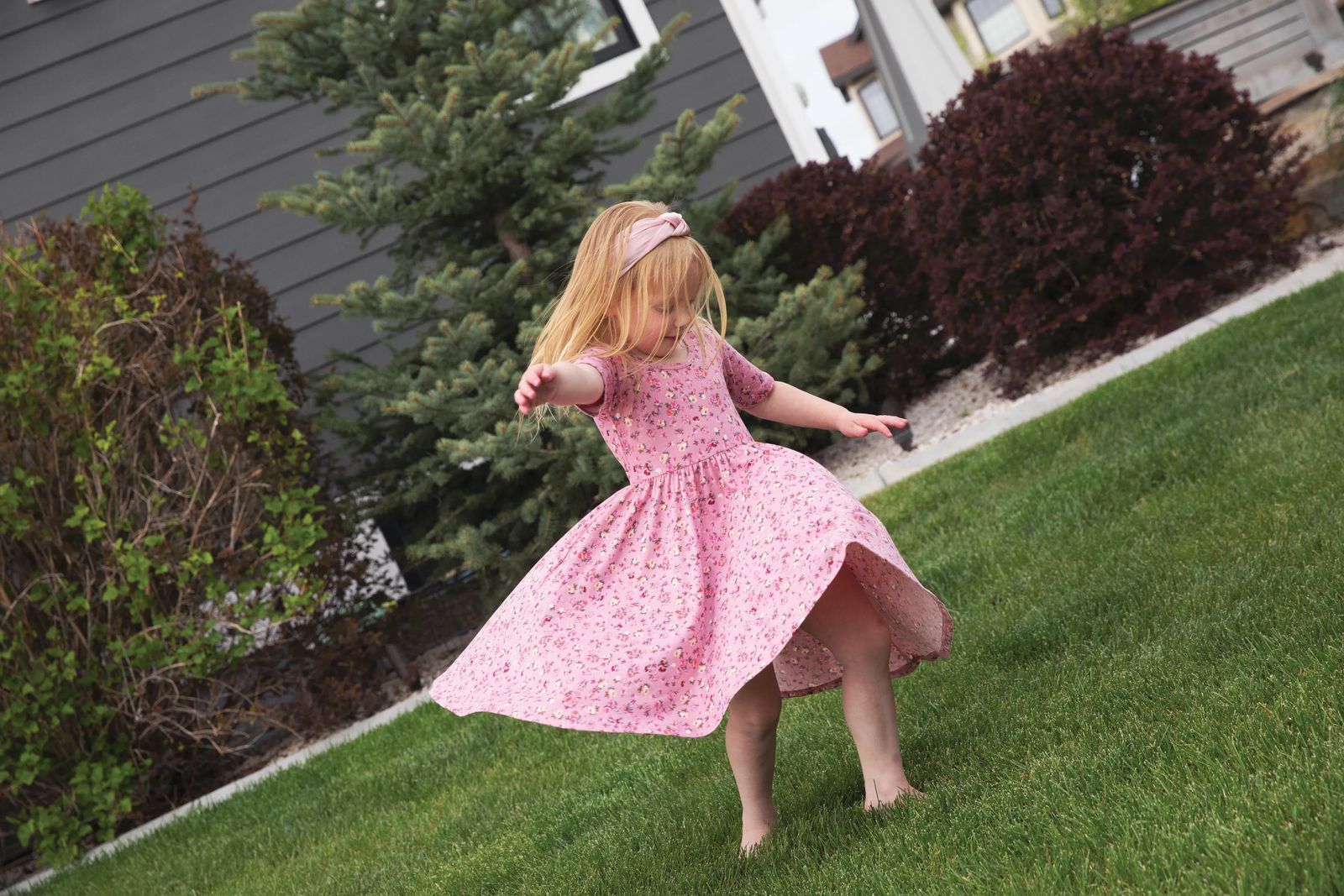
The Truth About Free-Range Parenting
July 2020 | by ashlynn reynolds-dyk | photo by jana graham
As we make our way through summer (which is disappearing much too quickly), it seems parenting styles become increasingly more… lax? Children have been home for months (thanks again, COVID-19). With these longer days and no more online/remote learning to fill chunks of our days, routines loosen up, allowing children more freedom and parents more exhaustion.
While some may refer to the increased freedoms and loose routines as chaos, they present opportunities for growth. I was recently introduced to the idea of free-range parenting. I admittedly raised my eyebrows at the concept, not fully knowing what is behind it. Is it just me, or does anyone else tend to think of free-range in terms of cattle or poultry? I had images of children running around doing whatever they want with no rules, boundaries, expectations, discipline, positive reinforcement, etc.
Now, I understand it is summer, and generally speaking, all bets are off, but then again, children doing whatever they want, however they want, and whenever they want is a bit terrifying, no? Upon further research, I learned that free-range parenting is more like a middle-ground between authoritative and permissive styles of parenting, and I began to appreciate the benefits of this particular parenting approach.
Gwen Felton, MA/LCPC/PC, of Northwest Counseling Center, explains that free-range parenting is "not a free will to do whatever a child wants" but instead, "freely allowing a child to experience life consequences at a younger age than most typical parenting styles." With this parenting style, parents teach children skills and set boundaries but allow children to endure natural consequences in life. It differs from being a passive or permissive parent because "permissive parenting trades judicious supervision for the absence of structure or rule enforcement," explains Dr. Kyle Pruett, Clinical Professor of Child Psychiatry at Yale School of Medicine. The opposite of permissive parenting is authoritative parenting, which tends to be more rigid or structured and usually entails more rules and discipline.
If you think about free-range cattle and poultry; animals are not running around without boundaries and no one caring for them. They exercise freedom and independence within a larger area instead of being stuck in small cages or stalls. Still, there is someone to care for them— feed them, provide them with water, etc. So, it is the same concept in terms of parenting children; free-range parenting allows children autonomy within a larger boundary or safety net.
Some of the benefits of this parenting approach include:
- Children feel empowered
- Free-range parenting encourages problem-solving skills, promotes creativity, makes children resourceful, strengthens personality formation, and builds confidence
- Children learn
- When children experience unfavorable natural consequences (as opposed to punitive consequences), the brain is more likely to store that and use it in future scenarios. Our memory helps us analyze a situation and project the outcome, allowing us to make choices for what is hopefully a more favorable outcome.
- Parents learn to self-soothe to calm their parental anxieties (Felton, MA/LCPC/PC)
- Parents can benefit from letting things go and having their children be responsible for more in their lives—this can decrease frustrations for both parents and children. For example, let children (old enough) handle their homework and face the consequences of doing it or not. Doing it well or poorly, asking or not asking for help when needed, etc.
Of course, there are some considerations one should take into account when thinking about parenting styles and actively adopting more of a free-range parenting style. Some of these include:
- Age
- The extent of independence a child is provided should be age-appropriate. For example, I am not going to allow my 3-year-old to eat marshmallows all day every day and experience the natural life consequence of diabetes. Still, I will let my 6-year-old graze on food in the house freely, knowing that he is choosing from bananas, oranges, yogurt, and other relatively healthy items.
- Connection
- When we require children to do tasks that they usually perceive as nurturing, a child could feel a lack of emotional connection. For example, "bathing, feeding, and working together is what forges the bond between parents and children" (Felton, MA/LCPC/PC). Finding a balance between a child caring for themselves and being cared for and exercising some freedoms is important. Felton explains that her children had one night a week that was "fend for yourself night." It was up to them to find something on their own for dinner (although she had the kitchen stocked with plenty to choose from). Not every night was like this, however, because children need to feel nurtured, cared for, and valued. This is often accomplished by bonding or connecting at mealtime.
- Balance
- Challenge your child but also maintain reasonable expectations. If a parent pushes too far or expects too much too often, children may fail and experience a higher level of anxiety.
Felton left me with this final thought: "I believe free-range parenting handled with reasonable, age-appropriate expectations and coupled with grace and love can be a positive parenting style."
Originally printed in the July 2020 issue of Simply Local Magazine
Never miss an issue, check out SLM's digital editions here!





